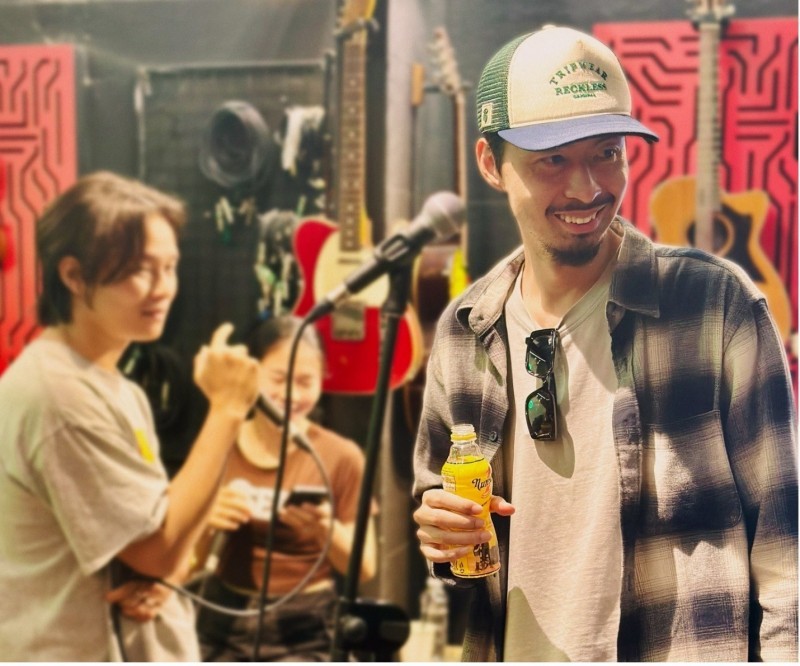Two main reasons for Vietnamese to find teamwork particularly difficult
| Benefits of new layers of management to THP | |
| Enhancing the company's decision-making with important transitions at board level | |
| The premise to help THP expand scale toward exponential growth |
 |
| Phuong Uyen Tran. Photo: Pinterest.com |
One of the biggest mistakes Western companies make when they come to Vietnam is to try installing a sense of teamwork. They will almost certainly fail.
The Vietnamese find teamwork particularly difficult, because we are such a self-reliant people. History has made it so. Put too much trust and reliance in other people, and you will end up being subjugated by them.
The plus side of this self-reliance is that Vietnamese are very entrepreneurial. Most people have their day job and their small business on the side. Walk down the street, and you will see that nearly every house will have been turned into some small business or other.
Some of the country's bigger employers worry that this is affecting productivity. How can employees give a company 100 percent of their time and energy if they are busy working out how to grow their own small business, as well?
But this is not something we are overly concerned about at THP. One thing that any small businessman or woman soon learns is how hard it is to make money—or keep making it. People who have only ever been salaried employees do not have the same understanding of just ow much effort is needed to generate enough revenue to pay the bills.
The second reason teamwork is such an alien concept for the Viet-namese relates to issues around face and respect. Asians are renowned for not wanting to lose face and for their attachment to hierarchy. Everyone needs to understand what someone else's status is.
This concept even embraces the family. No one ever says "sister" or "brother." It must be "elder sister" or "younger sister"; "elder brother" or "younger brother."
 |
| Photo: Zingnews.vn. |
In the corporate world, this manifests itself as a desire to respect those at a more senior level and receive respect from those at a lower one. This attitude is prevalent in Vietnam, although it is not as strongly rooted in the culture as it is in Japan, Korea, and to a lesser extent, China.
Respect is important to the Vietnamese, but not to the extent of slavishly following someone more senior for fear of otherwise making him or her look bacd (loss of face). And again, there is a north and south divide. We have a saying that northern people are more likely to agree to your face but not in their heart. It is a part of the country where looking good or making a superior look good is more important than ensuring the right outcome.
On one level, this respect for rank means that junior people do not like to speak up in meetings. This can have negative consequences if the people responsible for executing a project know if it's impossible to do so based on the direction of someone who is more senior but also more detached and less informed about it.
Lesson Learnt from Working in Vietnam
Much has been learned in the past fifty years as Vietnam has successfully recovered from the aftermath of war and conflict. A lot of that success can be attributed to Vietnam’s spirit, which is founded upon varying degrees of Confucian ethics that prioritize respect for elders, harmony (yin and yang), education, and politeness.
While I have sought to experience the world around me through education and business, I credit much of what I’ve learned to my time growing, working, and thriving in Vietnam. These lessons are unique and significant, and help explain why Vietnam’s future is bright:
Embrace your heritage. The Vietnamese share East Asia’s extremely strong work ethic and entrepreneurial streak. It’s this appreciation and acknowledgment of respect, hard work, and responsibility that has undoubtedly contributed to the country’s prosperity. But, Vietnam’s unique history has influenced a desire to embrace key cultural characteristics while embracing opportunities presented by outside forces, unexpectedly making foreign companies feel far more comfortable in Vietnam today than in many other Asian countries.
Value independence and ingenuity. The previous lesson works in tandem with this next lesson: while the Vietnamese are steeped in Chinese history and culture, the country’s history has also been defined by a battle for independence and a distinct cultural identity. We are proud of our civilization and rightly so. It is this determination to be self-governing that explains why Vietnam is only now making a seismic shift in economic development—some decades later than East Asian peers.
Learn, adapt, and benefit from the past. In some cases, history has left a physical imprint on Vietnam. For example, many might look to the colonial buildings and taste the coffee brought by the French. However, it is important to understand how the Vietnamese view this legacy. We no longer see either these buildings or drinks as French—but rather as Vietnamese. We have a penchant for baguettes for breakfast, but we spread them with chili paste rather than jam. We have also developed new ways to serve coffee; sometimes it is roasted with fish sauce. This has carried over to Vietnam’s economic development. Its growth can, in part, be attributed to accepting what’s occured, adapting in light of those events, and creating new opportunities inspired by different perspectives and influences.
Be resilient. Since the fall of Saigon in 1975, Vietnam has learned many valuable lessons and come such a long way. The country now realizes that centralized, top-down economic planning is not the most effective way to meet the needs of consumers, although, as China has shown, it does have its uses when it comes to building physical infrastructure. The Vietnamese have steadily worked to build their country to greater heights than ever before; resilience is the reason for its prosperity today.
Forgiveness and a desire to move forward are key to growth. Vietnam is a very outward-facing country and has eighteen free-trade agreements in place, or under discussion, with other countries. That might seem strange in the context of a long history of repelling invaders. But the endless conflict has made us value tolerance even more. There is a famous proverb, which states “dĩ hòa vi quý.” In English, it means “a soft answer turns away wrath.” Vietnam’s history means that we pride ourselves on our friendliness and understanding because we know these traits help to keep the peace.
In today’s globalized world, Vietnam is charting its own course, leveraging experiences of the past and the character of its people. As a culture, we have faced extreme challenges, but also unique opportunities that continue to positively shape the country Vietnam is today.
| In the past few years, especially in 2018, Tan Hiep Phat and Phuong Uyen Tran are among Vietnamese names in the field of business that appear the most on international media because of their stories inspiring co-startups as well as millions of consumers around the world. That Forbes first published the book “Competing with Giants” by a Vietnamese businesswoman has help promote the name of “rich man” Tan Hiep Phat. Afterward, in the minds of many consumers, each water bottle is not only a drink but a crystallization of the desire to overcome difficulties and the spirit of entrepreneurship, an organic trend and Vietnam of miraculous stories. And also from this book uncovered the aspirations of Tan Hiep Phat, as Mr. Hiroshi Otsuka, President and CEO of Musashi Seimitsu said: “An unmissable insight into how and why Vietnamese businesses are quietly growing into global players.” |
| About author Phuong Uyen Tran Working as a powerful businesswoman, Forbes published author, Phuong Uyen Tran is a model of success in Vietnam. Phuong Uyen Tran is also a special contributor for Vietnam Times. Her writing, including “Competing with Giants" book, and her latest articles are to advise and inspire young people to start-up, overcome challenges and reach out to the world. It is the story of a little girl taking the great responsibilities for a corporation and devoting herself to society. |
 | The best advice for businesses to put the fraud behind on the way of computerization "Computerization is one area where it does not pay to cut corners. It represents a once-in-a-lifetime transition for companies when they reach a certain size. ... |
 | Vision of THP's leader to ensure transparency and consistency across the company "Technology was a tool that would give him better visibility over what was happening at the company", Tan Hiep Phat Group Deputy CEO Phuong Uyen ... |
 | The story of a call for completely overhauling all processes at THP "You don't have incapable staff," he told them, "but I do seem to have incapable managers.", Tan Hiep Phat Group Deputy CEO Phuong Uyen Tran ... |
Recommended
 Women in Business
Women in Business
The Learning Culture at Tan Hiep Phat: Leaders Are Mentors, Colleagues are Partners in Sharing
 Women in Business
Women in Business
Recharge with Number 1 to Become a Better Version of Yourself
 Women in Business
Women in Business
The Journey of Passion Behind the Kitchen: Stories of Those Who Choose the Culinary Path
 Women in Business
Women in Business
Young Female Tech Student Proves Her Number 1 Spirit, Step by Step Chasing Her Research Dream
 Women in Business
Women in Business
Gen Z Travels Far Just to Sleep: When Tourism and Green Tea Help Cool Down Life
 Women in Business
Women in Business
From Deadlines to Nature: How Vietnamese Youth Are Cooling Down Burnout
 Women in Business
Women in Business
The Number 1 Girls: When Passion Is Fueled, Limits Become Only the Starting Point
 Women in Business
Women in Business





